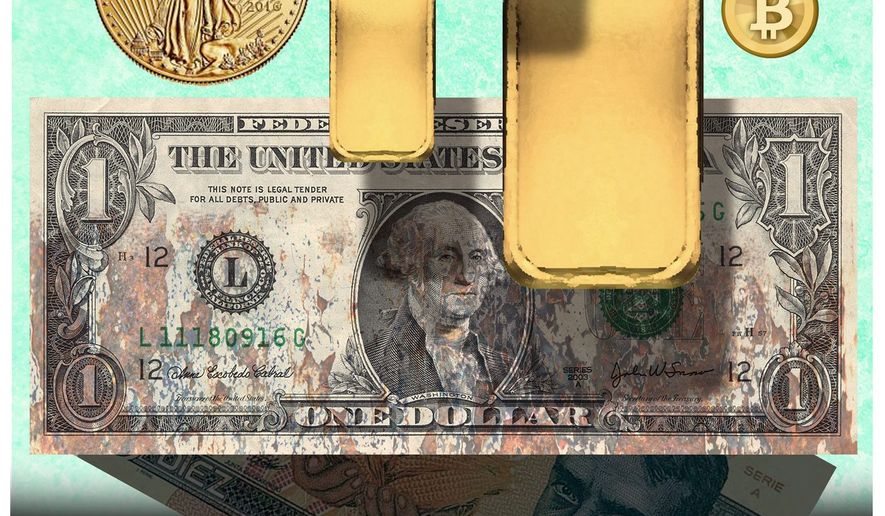As government currencies lose value, interest grows in private money-like products
Money has three functions. The first is to serve as a medium of exchange in order to facilitate transactions, rather than bartering one good for another. The second is to serve as a store of value. The third is to serve as a unit of account, which enables it to serve as a common measure of value of the goods and services being exchanged.
Many commentators have also been arguing about whether or not the “high dollar” is good or bad, relative to other currencies, and what the Trump administration should do about it, if anything. The British, residents of euro countries and the Canadians all need to spend roughly 30 percent more of their own currencies to buy roughly the same number of dollars they could have had about five years ago. The Mexicans need to spend almost twice as many Mexican pesos to buy the same number of dollars as they did in only a little more than three years ago — a disaster for the Mexican economy. If the peso continues to fall against the dollar, President Trump will never be able to build a wall high enough to keep Mexicans out of the United States.
The dollar is now worth about one twenty-fourth of what it was back in 1913, when the Federal Reserve was established. In 1913, the pre-Fed dollar was worth almost the same as it was in 1798 at the end of George Washington’s second term. Despite low inflation in recent years, the dollar is now worth about 20 percent less than it was a mere 10 years ago. It now takes about 60 times as many dollars to buy an ounce of gold as it did back in 1913. The dollar has been a lousy store of value, even though it has been less bad than most other currencies.
The volatility of foreign exchange rates and the risk of high rates of inflation greatly add to economic uncertainty. Increased uncertainty leads to less investment, and hence less job growth both in the United States and elsewhere. It causes havoc when businesses try to make investment and trading decisions. Companies that serve international tourists have an almost impossible task to properly price their products, given that most tourists and business travelers want to be protected from exchange-rate risk.
Back when the world was, in effect, on the gold standard — as led by the British from 1870 to 1914 — most exchange-rate risk was eliminated. There were some problems with the gold standard when the increase in the supply of gold did not keep up with economic growth rates in places like the United States, causing mild deflation resulting in labor tensions, but all in all it was a golden age for global investment — as well as for the free movements of persons (there were no passports).
The United States and most of the other developed countries have also been engaged in a global war on financial privacy, which in practice, means that governments are demanding access to everyone’s accounts and transactions. Those who value their financial privacy as a way of protecting themselves from corrupt governments, institutions and individuals (and the criminal class) have a strong incentive to use private money-like products, such as bitcoin, which may provide them with more privacy.
In 1976, Nobel Laureate F.A. Hayek, wrote a book, “Denationalization of Currency,” in which he described how privately created competitive currencies could be superior to those created by government. In an effort to “improve money,” innovators have created bitcoin and other privately issued digital currencies. Other economists, such as former International Monetary Fund official Warren Coats in his paper “A Real SDR,” have proposed ways of creating improved government-issued global currencies.
The United States reaps hundreds of billions of dollars by, in essence, serving as the reserve currency of the world, yet the government is in the process of throwing it away, by failing to make sure the dollar is a store of value (as required by law) and not a vehicle for bureaucratic busybodies to peer into people’s private affairs. The good news is that many smarter and more creative people are outside of government, and some will succeed in producing money-like products that are a better store of value, can be used as a global unit of account and medium of exchange, and protect one’s financial privacy.
• Richard W. Rahn is chairman of Improbable Success Productions and on the board of the American Council for Capital Formation.

No comments:
Post a Comment